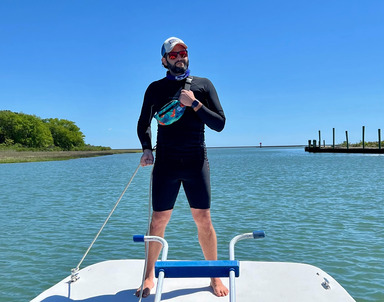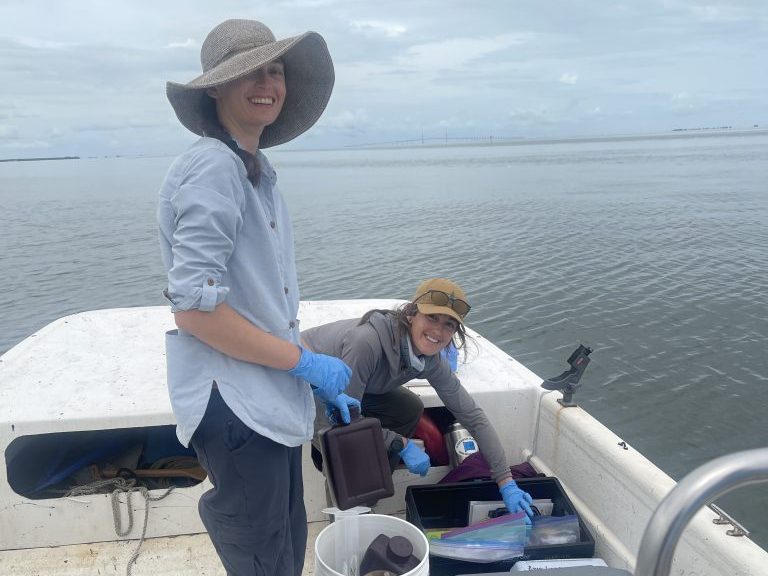Congratulations to CCS affiliate faculty members Marc Hensel and Elise Morrison, who were awarded Gulf Research Program (GRP) Early-Career Research Fellowships by the National Academies of Science, Engineering and Medicine. This prestigious fellowship provides rising scientific leaders with the resources to build partnerships and pursue innovative research that strengthens coastal communities and ecosystems. With funding and mentorship, the GRP offers the independence, flexibility and support essential at this pivotal stage in their careers.
“Florida could be a national leader in climate change resilience,” said Hensel, a research assistant professor at the University of Florida Nature Coast Biological Station (UF NCBS). “This program and award sets Elise and I up perfectly to contribute to that. It helps us hit the ground running with research addressing the Gulf of Mexico and climate change while connecting us with other researchers tackling similar questions.”

The GRP was created after the 2010 Deepwater Horizon oil spill to reduce the risks of future offshore oil spills. Its goal is to support Gulf communities by improving their ability to predict, prevent and recover from similar disasters down the road. Hensel and Morrison are two of eight fellows selected nationwide for the environmental protection and stewardship track. Fellows in this track will advance nature-based solutions to protect Gulf ecosystems and communities from climate change threats, while also providing benefits such as clean water and air.
This focus aligns with Hensel’s research on how upstream management impacts coastal ecosystems. For example, he looks at long-term trends to see how factors like land use management, land use changes and climate extremes affect water quality. Since water quality directly influences seagrasses and the fish populations that rely on them, his work helps inform management strategies to improve water quality to promote seagrass health.
“Effective management and prediction are based on a detailed knowledge of the past,” said Hensel. “But climate scientists tell us the future will look very different from the past. We’re seeing new extremes, unique combinations of stressors, and different species. I hope my research, which explores whether past strategies will remain effective in the long term, will be applicable to different regions along the Gulf Coast as we chart this unprecedented future.”
“I’m ready to bring everything I’ve learned back to Florida.”
Morrison’s fellowship will support her research into how human activities have altered the movement of carbon and nutrients to coastal areas, and how these changes impact water quality and essential coastal ecosystems.
“I’m interested in disentangling the factors that influence coastal biogeochemistry and ultimately, water quality,” said Morrison, an assistant professor in the UF Department of Environmental Engineering Sciences. “By better understanding the key drivers, like the microbes changing organic matter, we can then understand how management strategies will influence the mechanisms that drive water quality.”

Five other fellows have joined the GRP’s education research track, which supports the advancement of science and environmental education. Both Hensel and Morrison are eager to collaborate across sectors and disciplines with their new colleagues to effect positive, lasting change.
“This fellowship will be a great catalyst for advancing our current research and opening doors to new opportunities,” said Morrison. “I’m excited to see how this cohort of researchers will unite to address key challenges facing the Gulf.”
Check out the Early-Career Research Fellows announcement.
—
By Megan Sam
